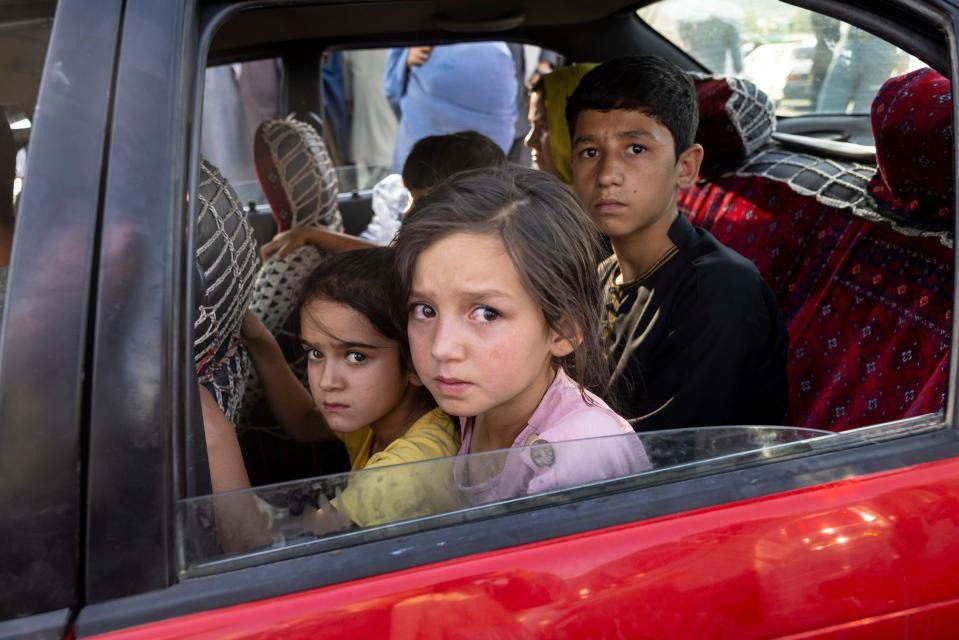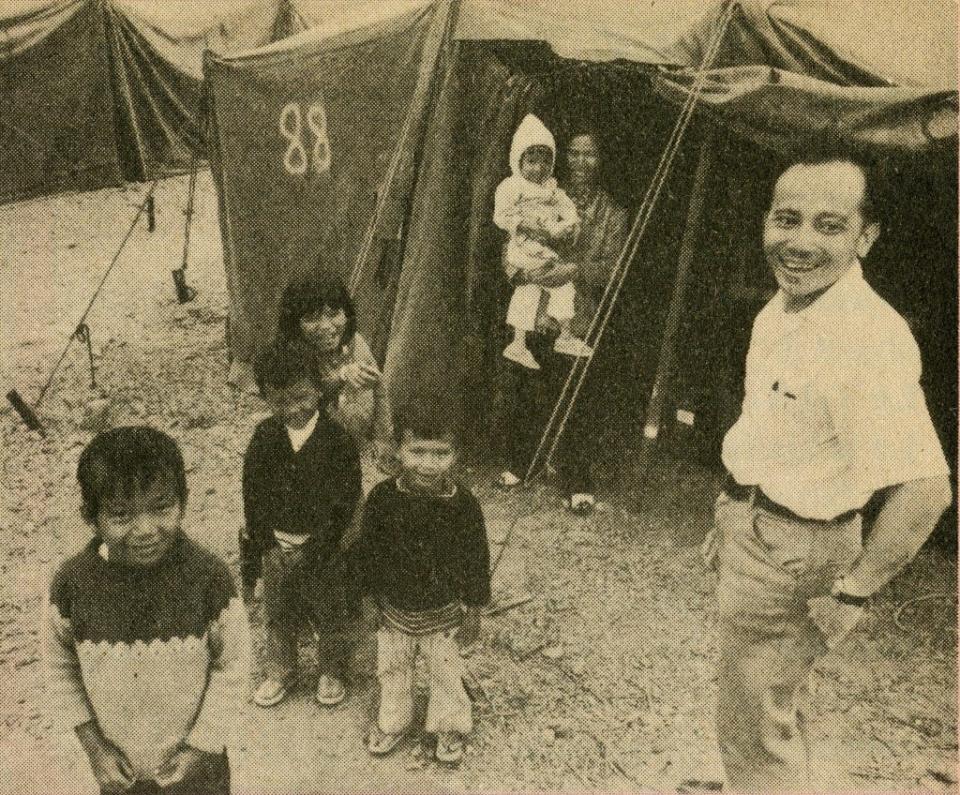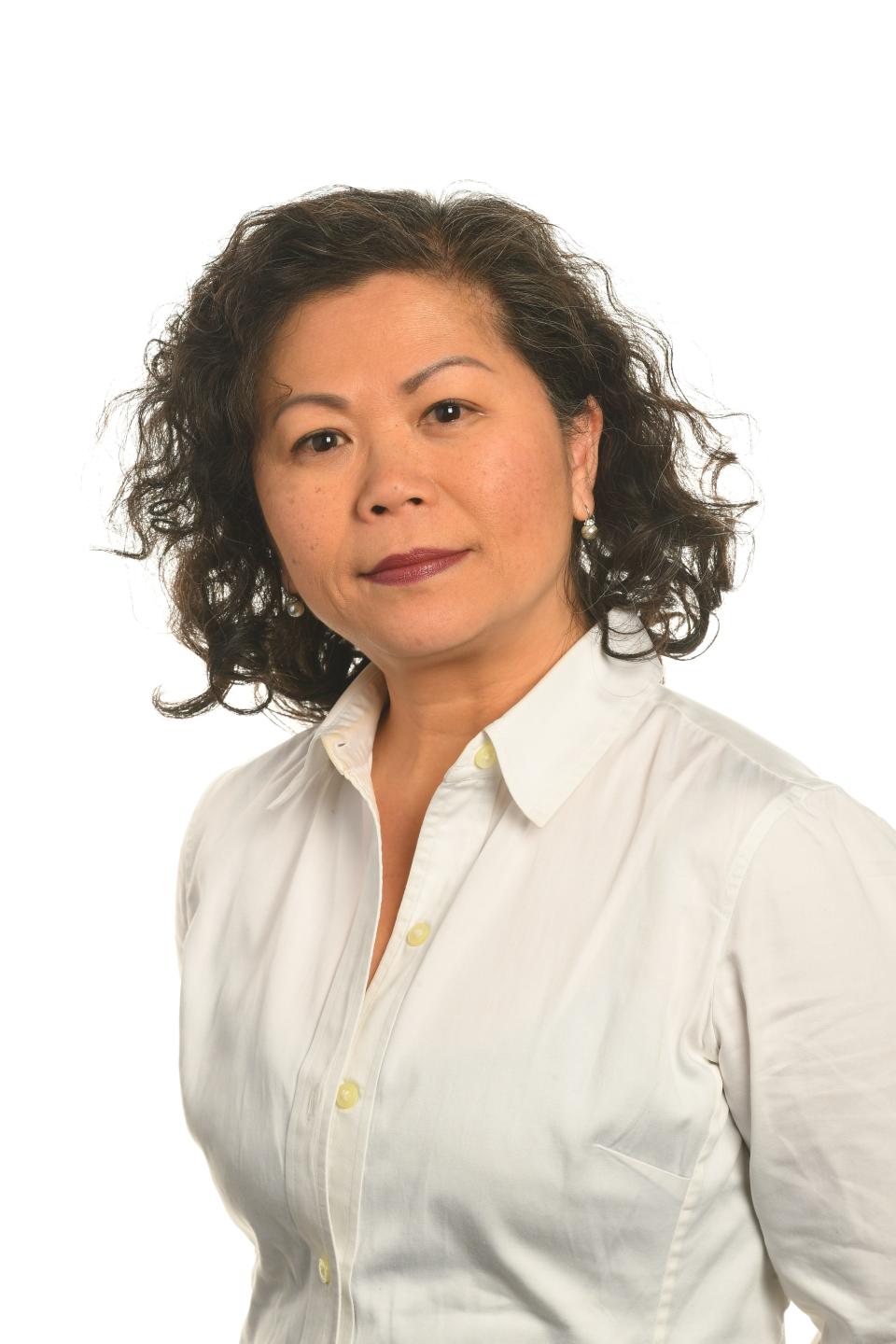Fall of Kabul, fall of Saigon: Their horror was our horror. Anguished, we pray for a miracle.
This article is free. For more exclusive news and takes on Afghanistan and the day's biggest news, please subscribe to USA TODAY.
“No one thought that Kabul would fall in less than 24 hours.”
It’s Sunday. Abdul Qahar is recounting his last phone calls with his parents, four brothers and a sister in Afghanistan. He’s FaceTiming me from Sacramento, California, and his eyes are drained from lack of sleep: “I was thinking that we would have a week or so to buy them tickets to fly to Pakistan or Turkey.”
But now – and I give up trying to control my voice as I ask him – but what now for his family? Qahar, a former interpreter for the U.S. Marines whom my husband met when they both worked at a U.S. military compound in Kabul nearly a decade ago, immigrated to America in 2014. But one of his brothers who is still in Afghanistan was in the Afghan special forces. The brothers have all gone into hiding. And they told him the Taliban have started searching homes. “I told them, burn letters from me,” Qahar says. “Try to hide yourself as much as possible.”
Watching Kabul in horror
I’m crying; he’s not crying, but his face and voice betray his agony. After months of planning and hoping, suddenly, there’s nothing to do but helplessly wait. Wait for the visas he has applied for to try to get his family to America. Wait for a miracle. For an escape.
I don’t know Qahar or his family. But my family’s all too familiar with their anguish. Their nation's capital has fallen, and now they fear losing everything to a deadly enemy.
USA TODAY Editorial: Biden's Afghanistan horror: A well-intentioned miscalculation with disastrous, predictable results

What’s worse? Losing everything as an adult? Or as a child not realizing your family’s about to lose everything?
Former Vietnam War refugees have been watching Kabul in horror. Or unable to watch at all, not wanting to relive our fall of Saigon nearly five decades ago: U.S. military advisers and combat troops leaving after a couple of decades. Check. A corrupt government that failed its people. Check. Helicopters evacuating U.S. Embassy staff. Check. Long lines at different embassies of the desperate trying to get exit visas. Check. Run at the banks. Check. A cowardly president fleeing the country. Check. Kids in the backseat of cars fleeing with their families to God knows where. Check.
I was in third grade in Saigon in the spring of 1975. Dad, a former South Vietnamese lieutenant fluent in several languages, was a managing editor of an English-language weekly called the Vietnam Sun. He told Mom the end of our world was coming with the advance of North Vietnamese communist forces. She made cloth backpacks for us five kids, ages 8 to 3, and bought us tennis shoes for the first time – in case we had to literally run from Vietnam through highways and forests to refugee camps in neighboring countries. He bought poison. If we can’t make it out, there’d be a last supper. He didn't want to watch his kids suffer.
Dig deeper with subscriber-only journalism:
Is Kabul 'Biden's Saigon'? The haunting images of a chaotic exit out of Afghanistan are evoking comparisons to the retreat from Vietnam.
They led the war in Afghanistan. Now, defense secretaries say the U.S. 'invented reasons' to stay in Afghanistan.
Exclusive analysis from USA TODAY's Susan Page: This is President Biden's biggest defeat, fair or not.
Former President Donald Trump blamed Biden, even before the Taliban marched into Kabul on Sunday. Would the withdrawal have been 'much more successful' under Trump?
Taliban vs. communism
Neither of my parents was a stranger to fleeing communism. In his youth in the north, Dad had wanted to join the nationalist Vietminh to end French colonialization, but when it turned communist, he lost all illusions. Both Dad’s and Mom's families abandoned homes and businesses in 1954 and fled south because they didn't want to live under communism. And 1954 was when the country was divided into communist North Vietnam and U.S.-backed South Vietnam, before my parents even met in Saigon.
My mom was one of 15 siblings. That April 1975, there was a family meeting with her brothers and sisters and their spouses. A couple were still military officers serving South Vietnam, others worked at the U.S. Embassy and some had married U.S. service members. The military officers weren’t abandoning their posts, but their families had to decide whether to leave without them. One of the American uncles worked for Air America, and he said he’d try to get exit visas for everyone.

On the night of April 21, my parents were packing our family photos and a change of clothes for each of us when South Vietnam’s president resigned on television before fleeing abroad. Early the next morning, we took a taxi to the airport. We spent all day standing in line and got on a Pentagon cargo jet about 9 p.m. After our C-130 was in the air, U.S. soldiers went around shining flashlights out the windows. When Dad asked why, they said that we had been shot at, but that the darkness helped so only the wings were nicked.
I’ve written about my child refugee experience in prior columns. I had feared the end of the world for some other 8-year-old girl in Afghanistan. But now, my fear and that girl’s reality can’t be compared.
You can’t compare communism to the Taliban. After the fall of Saigon, the communist Vietnamese government imprisoned a couple of my military officer uncles at reeducation camps, and our relatives who didn’t escape Vietnam suffered a lot. But the suffering didn't discriminate. The Taliban ruled Afghanistan for five years until the 2001 U.S.-led invasion. During that time, they forbade girls an education and women the right to work, and refused to let them leave their homes without a male relative to accompany them. Since peace talks began last year between the Taliban and the U.S.-backed Afghan government, women working in fields such as journalism, health care and law enforcement have been killed.

I desperately want to tell this girl that she'll be OK. Look, I've been a war refugee but now I'm an editor at a national newspaper in America. But tears and shame make me bite my tongue.
Qahar, who was injured when his U.S. Marines unit was hit in 2009 by a road side bomb, and his wife now have a daughter who's almost 2 in Sacramento. But they're suffering sleepless nights worrying over families in Afghanistan. During our FaceTime, his daughter rambles in the background in incomprehensible toddler language, but I understand too well what Qahar is telling me: "It's hard to describe what's going to happen."
If you want to help Afghans in crisis, donate to the International Rescue Committee.
Thuan Le Elston, a member of USA TODAY's Editorial Board, was born in Saigon, South Vietnam. Her historical fiction novel, "Rendezvous at the Altar: From Vietnam to Virginia," will be published next month. Follow her on Twitter: @thuanelston
You can read diverse opinions from our Board of Contributors and other writers on the Opinion front page, on Twitter @usatodayopinion and in our daily Opinion newsletter. To respond to a column, submit a comment to letters@usatoday.com.
This article originally appeared on USA TODAY: Vietnam refugees from Saigon watch Taliban, Afghanistan in horror
